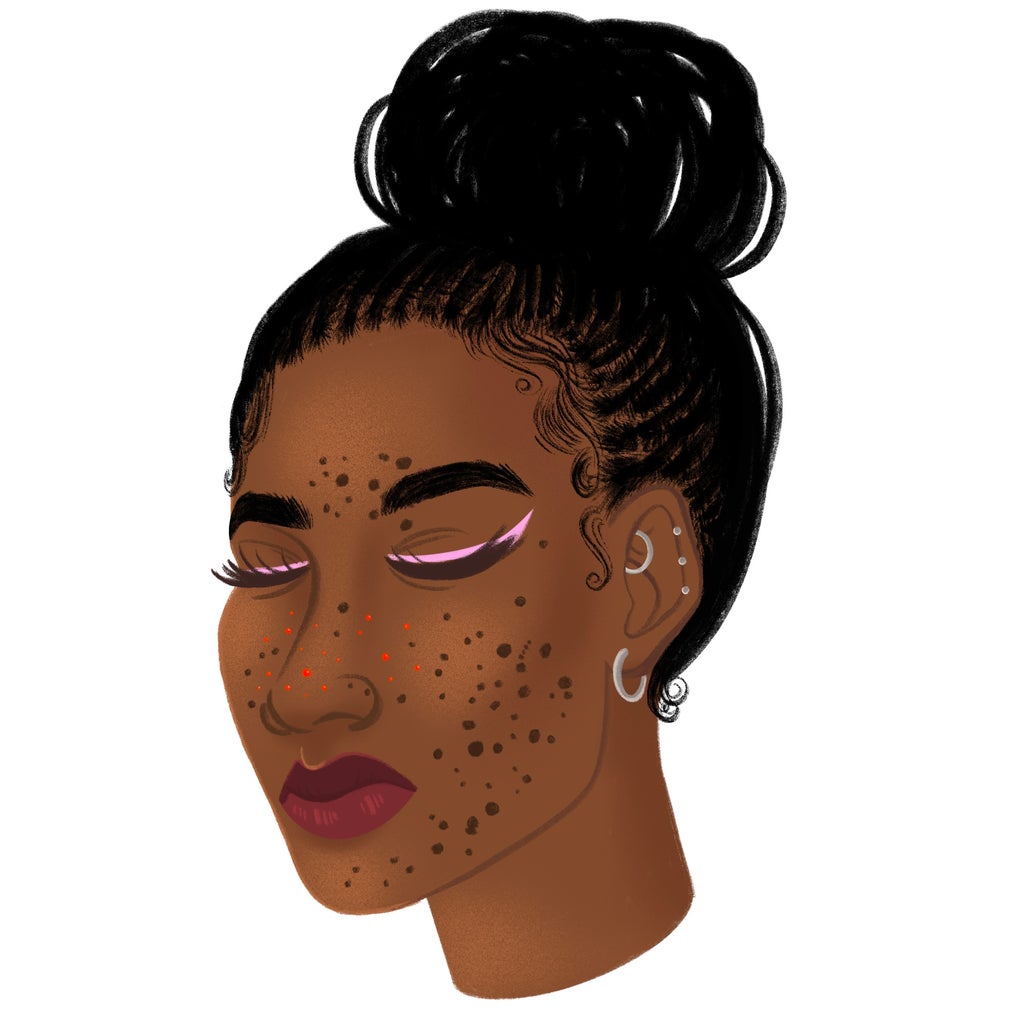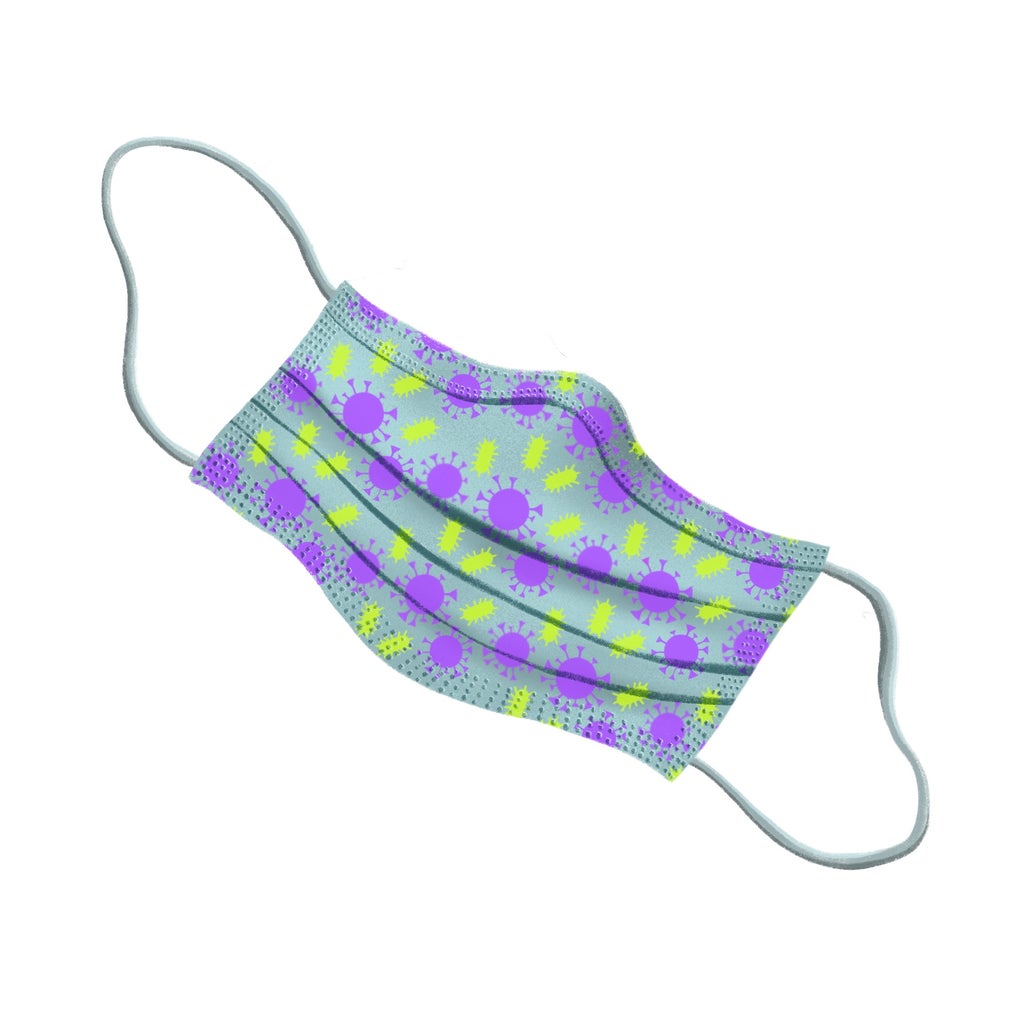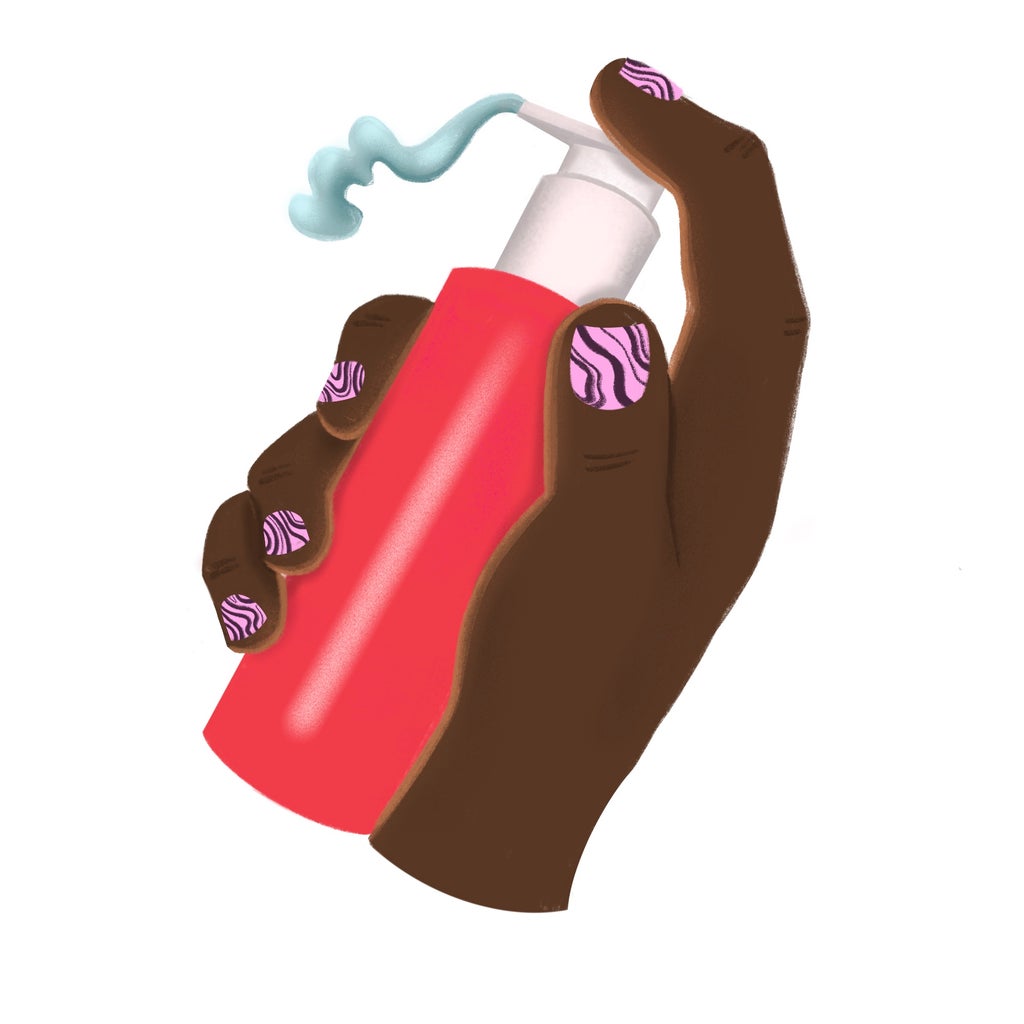There’s honestly nothing worse than executing what was bound to be a glowier-than-thou face beat only to find a ripening pimple brewing under the surface. As common as acne is (it affects up to 50 million Americans annually), it can still be exceedingly frustrating — not to mention, truly disheartening — to experience breakouts as 1) a full-grown adult, and 2) a Black woman, who not only has to deal with the bump itself, but also the aftermath, which affects melanated skin differently (hyperpigmentation, acne scarring, inflammation).
That’s why we partnered with Neutrogena, the skin-care brand dedicated to providing access to dermatologist-grade ingredients at an affordable price point (see: its popular pimple-eradicating Stubborn Acne line), to harness the wisdom of Chicago-based dermatologist Dr. Caroline Robinson, MD, who took the time to answer your most pressing acne questions. From maskne to hormonal breakouts to laser treatments, read her answers about caring for melanated skin, below.
I find that I break out more in the winter. Why is that? Is winter acne different, and should I be treating it differently?
“The vicious cycle of dryness and dehydration that often accompanies the change of season can lead to a compromised skin moisture barrier, causing our skin to overcompensate by overproducing oils. Seasonal changes can therefore lead to dryness, irritation, oiliness, clogged pores, and worsening of acne. Using a gentle cleanser that works with, not against, your skin moisture barrier is the first step in reaching balance and a great choice is the Neutrogena Ultra Gentle Daily Cleanser with Pro-Vitamin B because its non-foaming, non-medicated formula is easy on acne-prone and sensitive skin.
“To treat breakouts at home, my favorite is the Neutrogena Stubborn Acne AM Treatment — it contains 2.5% micronized benzoyl peroxide, which has the ability to target and eliminate acne-causing bacteria quickly.”

Are chemical peels effective in helping the skin or are they actually harmful?
“Chemical peels are an effective way to address acne, texture, and even skin tone. They often contain a concentrated blend of alpha and beta hydroxy acids, antioxidants, retinol, and/or brighteners. When performed correctly, they can actually be very beneficial for the skin by exfoliating and/or promoting skin cell turnover and revealing brighter, clearer skin. The most important thing to keep in mind when considering chemical peels is that they should be done in consultation with a licensed professional, such as an aesthetician or a dermatologist. At-home chemical peels are typically less potent and safe to perform at home, however, make sure that you read and understand the package information, risk, benefits, and safety precautions.
Masks are still causing me acne — I wash the mask, I wash my face, but I’m fighting with my face for a week after. What can I do?

“Many people have struggled with stubborn breakouts developing under the mask for the past couple of years. It’s important to remember that not all breakouts are acne — there are many other skin conditions that can be aggravated under the mask and resemble acne bumps. If your breakouts are stubborn and not responding to typical over-the-counter treatments, I highly suggest consulting with a board-certified dermatologist. That being said, there are some helpful tips and tricks that can help you get ahead of those bumps. 1) Try to incorporate exfoliation into your routine with a mild alpha hydroxy acid, such as glycolic acid, lactic acid, or mandelic acid at least once a week. A great product to include in your regimen is the Neutrogena Stubborn Texture Daily Cleanser, which features a blend of salicylic acid, glycolic acid, and polyhydroxy acid to help clear stubborn acne and smooth uneven skin texture. 2) Consider using lighter skin-care formulas under your mask, like a lightweight sunscreen. 3) Use barrier cream for sensitive areas, like around the nose and lips (Vaseline is a great option).”
I’ve recently stopped using hormonal birth control and my skin has gone wild. I was lucky to have never had acne as a teen, but that means I’m not sure how to handle this. I’ve heard it can take months to settle.
“You’re not alone. Many women experience adult acne following discontinuation of their birth control and it can be a challenge. The root of this is that hormonal changes can lead to increased sebum production and make women in particular more susceptible to acne as they get wiser. I recommend touching base with a dermatologist, especially in cases of inflammatory acne, to start treatment that can be helpful in reducing the risk of scarring and hyperpigmentation. You can always work together to slowly discontinue treatment should things get better.”
How are you supposed to treat both acne- and eczema-prone skin? It seems like the treatment for one triggers the other.

“You’re absolutely right. This is one of the trickiest scenarios, and I see it often in the office. When it comes to treating acne on sensitive or eczema-prone skin, the way that you use prescriptions and products is equally as important as which products you use. Retinoids in particular can be difficult because they often create some dryness and possibly irritation when you first start to use them. Some can’t tolerate them at all. Work on going ‘low and slow’ with retinoids and other treatments, and make sure that you’re using other products that strengthen your skin’s moisture barrier as well (look for moisture-drawing skin-care ingredients, like ceramides, squalane, and hyaluronic acid).”
I’ve always been interested in getting some kind of laser/facial treatments to help with acne scarring, but I’ve heard that women with more melanin are sensitive to some treatments like microdermabrasion. What kind of treatment do you recommend for scarring with that in mind?
“I find that microdermabrasion can be either ineffective or troublesome for women of color, especially those who are prone to hyperpigmentation, because of the risk of inflammation and resulting hyperpigmentation. All acne scars are not created the same. Some treatments I recommend often are 1) microneedling, which can treat acne scarring and can be used with or without other technologies, such as platelet rich plasma and radio frequency to help boost results, and 2) Nd:YAG laser for more pigmented scars. Never underestimate the importance of a consistent skin-care routine (sunscreen, retinoids, and antioxidants) in ensuring that any in-office procedure you choose is successful. Two of my favorite over-the-counter ingredients to help with breakouts (before seeing your dermatologist) are benzoyl peroxide and salicylic acid. To help clear acne and improve skin tone and texture, try an exfoliating, acid complex product like Neutrogena Stubborn Texture Daily Cleanser. If your breakouts are severe, it’s important to seek an evaluation by board-certified dermatologist.”
Like what you see? How about some more R29 goodness, right here?
from Refinery29 https://ift.tt/3DVab0o
via IFTTT
